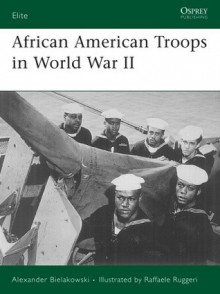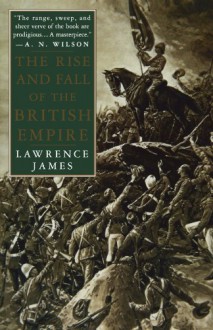A few days ago, Chris provided an update on the Essentials History list. In it, she noted gaps in a few subject areas, namely about the histories of non-Christian religions, South America, Australia, and particularly Africa. I thought I'd fill in the gaps, albeit with a caveat: as I haven't read as deeply into these areas myself I'm going to have to violate my rule of suggesting only books that I've read and propose titles recommended by others. Because of this, feedback by anyone who has read those books would be appreciated.
Africa
1. A History of Africa by J. D. Fage. When I sought to fill in the gaps in my knowledge of world history I searched out a book that would provide a good, solid overview of African history. Fage's book proved the best in providing the solid, balanced survey that I could use as a starting point for exploring African history in greater detail.
2. The Penguin Atlas of African History by Colin McEvedy. This is one that I haven't read, but which comes highly recommended -- and I always recommend having a good historical atlas when studying the history of a region with which you're unfamiliar!
3. Precolonial Black Africa by Cheikh Anta Diop. Though dated, this is a book that provides a nice focus on the Africa before it was defined and redefined by the West.
4. Africa and Africans in the Making of the Atlantic World, 1400-1800 by John Thornton. This is one of the essentials when it comes to studying African history, as well as the impact Africans have had on the wider world.
5. A Fistful of Shells: West Africa from the Rise of the Slave Trade to the Age of Revolution by Toby Green. If this one looks familiar, it's because I was fortunate enough to feature the book in a podcast a few months ago. Green does a fantastic job of taking often limited materials (the bane of any study of African history) and using them to explain a region in transition. Highly recommended.
6. Frontiers: The Epic of South Africa's Creation and the Tragedy of the Xhosa People by Noel Mostert. So much of the history of Africa in the 19th century is the story of conquest. Mostert's book is one of the best, both for his focus on one region and his description of its impact upon a specific group of Africans.
7. The Scramble for Africa: White Man's Conquest of the Dark Continent form 1876 to 1912 by Thomas Pakenham. This is arguably more of a European history book as it is an African one, but for a narrative of the "scramble" it can't be surpassed.
8. Defeating Mau Mau, Creating Kenya: Counterinsurgency, Civil War, and Decolonization by Daniel Branch. The decolonization of Africa is a subject that is only now receiving its due from historians. Branch's book is one of the best, as he shows how the process of decolonization cast as dark a shadow over the independent countries as did the colonial era.
9. Anatomy of a Miracle: The End of Apartheid and the Birth of the New South Africa by Patti Waldmeir. This is a book that straddles the boundary between journalism and history to describe how the apartheid regime ended in South Africa. As an account of it it is unlikely to be bettered.
South America
1. A History of Latin America, c. 1450-present by Peter Bakewell. This is more broadly about Latin American history than South America specifically, but it's a very capable survey of the region.
2. The Conquest of the Incas by John Hemming. William Hickling Prescott's History of the Conquest of Peru is the classic account and the more entertaining one, but Hemming's book is by far the better of the two for understanding the event that toppled the dominant empire in South America at the time of the Spaniards' arrival.
3. The World of Túpac Amaru: Conflict, Community, and Identity in Colonial Peru by Ward Stavig. In this book, the author uses the Túpac Amaru rebellion to examine colonial Spanish society on the eve of independence.
4. Americanos: Latin America's Struggle for Independence by John Charles Chasteen. This is an effective, if disjointed, survey of how Latin America gained its independence in the early 19th century.
5. The Paraguayan War and The Road to Armageddon by Thomas L. Whigham. The Paraguayan War is one of those epic conflicts that most people in the north are unforgivably unfamiliar with, which makes Whigham's two volumes on it absolutely necessary reading for understanding its origins, course, and legacy for the region.
6. Blood and Fire: La Violencia in Antioquia, Colombia, 1946-1953 by Mary Roldán. Colombia has a long history of violence that predates the U.S.'s engagement with it in the context of the "war on drugs." By looking at just one period of it, Roldan provides a valuable look at Colombian politics and society.
7. A Lexicon of Terror: Argentina and the Legacies of Torture by Marguerite Feitlowitz. A study of Argentina's "Dirty War" of the late 1970s and early 1980s, this is another book at the crossroads of journalism and history that is likely to stand the test of time.
8. Revolutionizing Motherhood: The Mothers of the Plaza de Mayo by Marguerite Guzman Bouvard. A key factor in the downfall of the generals in Argentina in 1983 was the pressure they faced from families of the people they "disappeared." Bouvard's book offers a superb account of their activism.


 Log in with Facebook
Log in with Facebook 









